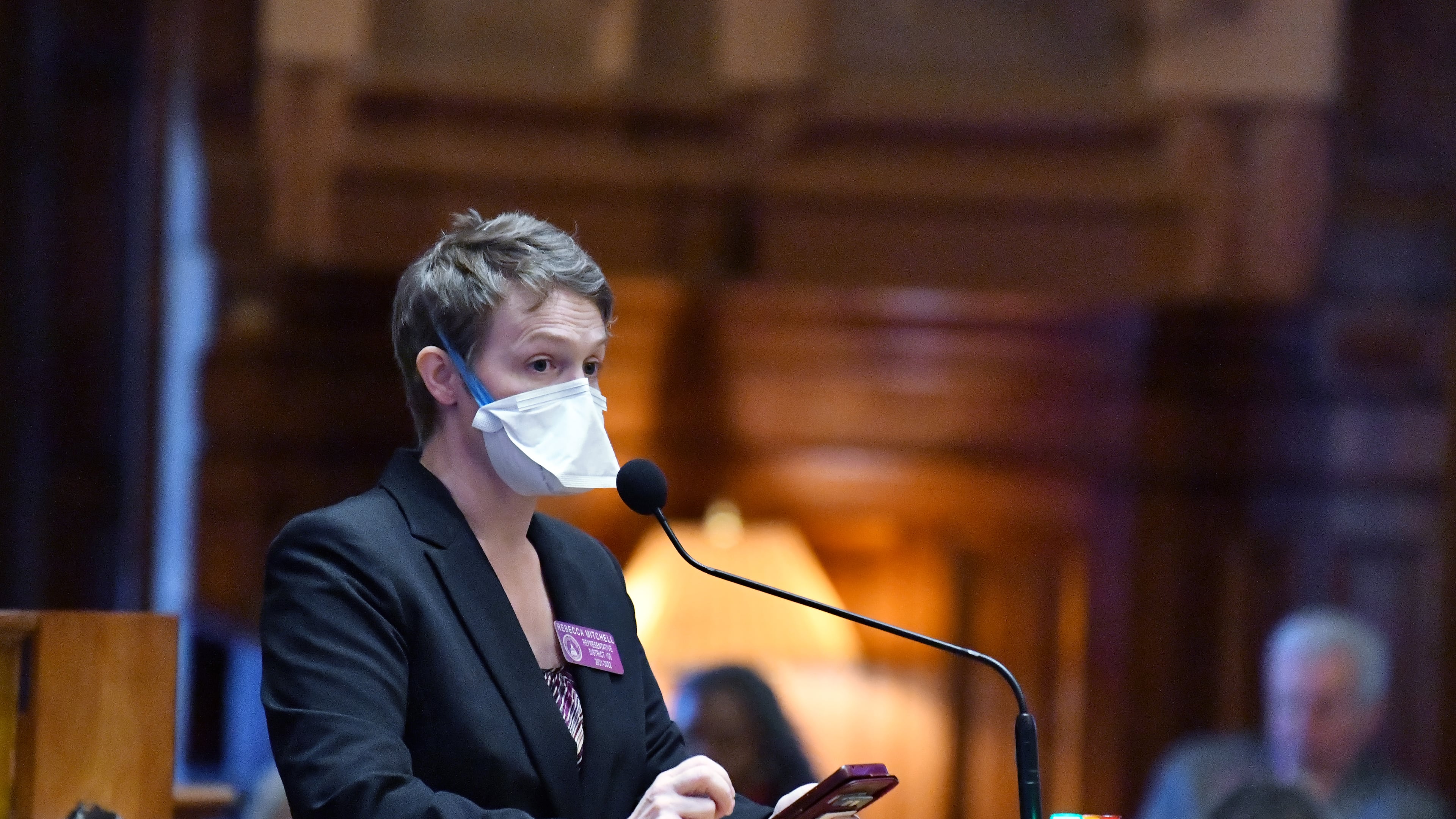Researchers release COVID plan for schools based on equity

A group that includes researchers, a public health department director and a Georgia legislator has released a plan for schools nationwide to respond to COVID-19 with an eye toward minimizing harm to Black and Latino students and other populations most affected by the pandemic.
Called the “Equity Schools Policy Plan,” the goal is to reverse what have been disproportionately high rates of negative outcomes from COVID seen among children of color. This includes hospitalizations: Hispanic children made up 36% of COVID hospitalizations and Black children, 21%, according to a study published this spring. Meanwhile, only 25% of U.S. children are Hispanic and 14% are Black.
The plan recommends schools adopt strategies such as temporary mask mandates, vaccination campaigns, scheduled testing and improved air ventilation and filtration.
It suggests that schools give students five to ten KF94/KN95/N95 masks twice a year, and require mask-wearing during COVID surges as defined by “high” CDC community transmission levels. Vaccinations should be offered at community events centered around families of students, and schools should conduct opt-out testing, or provide take-home tests.
Lead author and public health policy scientist Julia Raifman released the document online Aug. 15, several days after the CDC issued new COVID guidelines. The effort has drawn signatures of support from 149 scientists, doctors, public health personnel, teachers and school nurses across the country. Raifman hopes the plan fills a vacuum left by the CDC revision, which includes relaxed quarantining and social distancing recommendations.
“We look to the CDC for policy guidance, and they should set a high bar — what evidence shows works, what’s important for equity. Unfortunately, they haven’t done this. Given this, we developed policy guidelines to help state and local leaders,” said Raifman, a Boston University professor whose previous work includes overseeing a database detailing state COVID policies.
State Rep. Rebecca Mitchell, D-Snellville, also helped write the plan. Mitchell, who is an epidemiologist, acknowledged the challenges of implementing the plan’s measures in Georgia, where such policies as mask mandates have drawn opposition from some parents.
“The political practicalities are pretty grim,” Rep. Mitchell said. She noted that school systems in some states, such as Massachusetts, offered take-home COVID tests to students. “The fact that this hasn’t happened here doesn’t make it less of a best practice,” she said.
“We need to be setting public health policy based on equity, rather than what’s popular,” Rep. Mitchell added.
Ga. State Schools Superintendent Richard Woods did not respond to requests for an interview about the plan to “understand his reaction to its components,” and instead sent an e-mail statement supporting local school districts having “the flexibility to respond to community needs.”
“We will continue to follow the recommendations of the public-health experts at the Georgia Department of Public Health,” the statement read.
Raifman observed that polls consistently show a majority of Black and Hispanic people supporting mask-wearing in schools. “We need to consider the people who are disproportionately affected” by COVID, she said. That impact has not only been seen in hospitalization rates. Another measure of the pandemic’s disproportionate affect on children of color is the loss of a parent or caregiver. One study released in late March estimates that 4,795 Black children across the state lost a parent or caregiver to COVID, the second-highest amount in the nation, after Florida.
Dr. Peter Rebeiro, professor of medicine in the division of infectious diseases at Vanderbilt University Medical Center, also supported the plan. He noted that lingering cardiovascular, neurological and cognitive conditions — part of what is called “long COVID” — are not completely understood, in children or adults.
“Without knowing the long-term risks, it seems like a good idea to mitigate as much as possible,” he said.
Dr. Stella Safo, HIV physician and founder of Just Equity for Health, a nonprofit organization, said the plan’s measures would help reduce the outsized impacts of COVID to date on children with disabilities and chronic diseases, as well as Black and Latino students and their families.
“What is happening is certain portions of our populations are suffering more — they’re losing parents, missing work, perhaps suffering long-term disabilities,” she said. “If everyone’s not impacted in the same way, how can we take measures to have more equitable outcomes?”
The Atlanta Journal-Constitution and Report for America are partnering to add more journalists to cover topics important to our community. Please help us fund this important work at ajc.com/give

